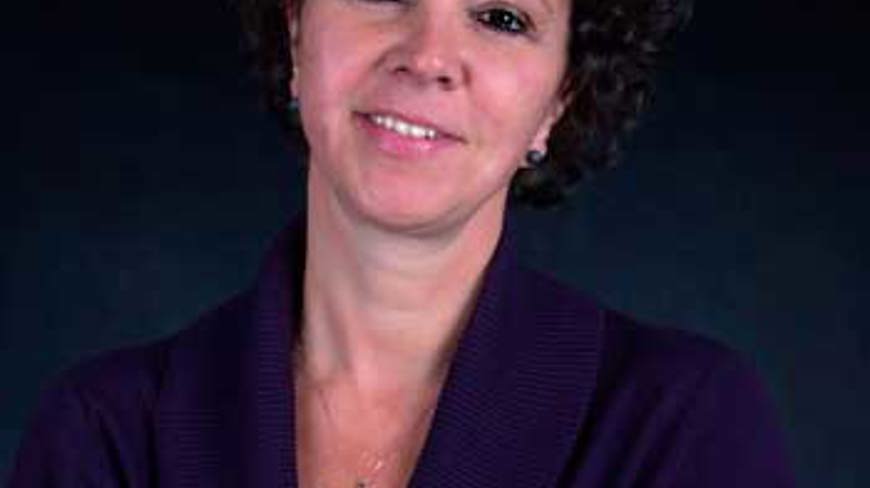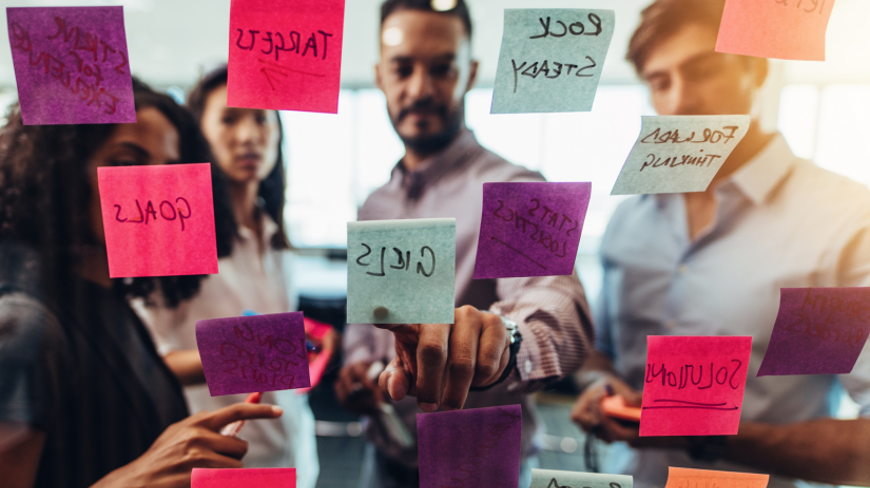How Entrepreneurs Can Balance Speed and Environmental Sustainability in Business Growth
August 4, 2025
Published in:
Being mindful of your company’s impact on the environment does not mean surging costs and slow growth. Learn how one EO member has made sustainability a core value — and thrived.
 Karsten Warrink (EO Berlin) on one of his company's
Karsten Warrink (EO Berlin) on one of his company's
mobile solar-powered digital billboards.
By Karsten Warrink (EO Europe Bridge), founder and CEO of numerous marketing and logistics businesses that focus on sustainability. Each of his companies was born from a desire to create innovative and eco-friendly solutions. Karsten is the past president of the EO Europe Bridge chapter and has been an EO member since 2010.
My team and I faced a conundrum recently. We had to haul numerous bicycles across Germany for a campaign. Each bike has a solar-powered LED screen for displaying ads — a dynamic, mobile, and effective form of marketing. The easiest solution would have been to toss them in a diesel truck and hit the road, but we have built our companies around sustainability, so that was not a viable option.
Instead, we bought electric cars and towed the bikes with trailers. It took a bit longer, we had to stop more often to charge, and it cost more. Still, it was worth it: Not just because we minimized our emissions, but because it aligned with our values and gave us a resonant story to tell our clients.
Sustainability is not simply a marketing gimmick for us. It is a mindset. That said, going green does not have to be all or nothing, and it certainly does not have to come at the expense of growth.
Start Small, Start Now
About a decade ago, we made our first shift toward sustainability by switching our offices over to renewable energy. This was no major overhaul to how we approached business, simply a new energy provider. It cost slightly more — not even enough to notice, honestly — but it was our first step down a rewarding new path.
Since then, we have introduced small but meaningful changes across our businesses. In addition to swapping diesel vehicles for electric ones, we have encouraged employees to use bikes or trains instead of cars or planes. We have even turned down client campaigns when the environmental cost of the effort did not mesh with our values.
You do not need to change the world overnight. Instead, instead simply start making sustainability focused decisions one at a time. As that mindset begins to trickle down to every level of the company, the benefits compound quickly. Some think focusing on environmental sustainability is the enemy of scale, but I have not found that to be true.
Yes, it might take longer to make a trip by train instead of plane, but we use that as time to connect as a team and brainstorm ideas. That can be just as valuable as racing to the next destination. What’s more, embedding sustainability into your growth model can actually future-proof your business. Clients increasingly ask about our environmental practices, and partners appreciate the transparency. Our team — once a bit skeptical because of the extra management time — now rallies around these values. That alignment builds culture, loyalty, and ultimately, momentum.
Supply chains are one of the trickiest aspects to manage sustainably, especially when you are still growing. In some cases, it is the only reasonable option. But in others, we have made a conscious decision to localize production in Germany or elsewhere in Europe. Not only does that reduce carbon emissions, but it often improves delivery times and quality control.
You cannot swap out every link in the chain overnight, but interrogate your suppliers, ask the hard questions, and shift when the opportunity arises. We track the carbon tonnage that our campaigns produce and seek to offset 100 percent of it. Then, we match the cost of the carbon we are offsetting by investing in renewable energy funds. We have lost some money investing in these funds, but that is not the point. The point is to measure our impact, hold ourself accountable, and to back up our values with real action.

Karsten helms several marketing and logistics companies
that are built around sustainable practices and products.
Do Not Preach — Inspire
I certainly do not want to preach or judge. Some entrepreneurs do not care, while others work in industries where change seems almost impossible, and that is okay. We all start somewhere, and we all have different limits and opportunities. It is the little steps each of us are willing to do that matter.
I have found, though, that when you make changes and talk about them openly, others follow. When we launched a green initiative across our companies and issued a press release about our evolving approach, other companies followed our lead. So do not be afraid to advertise the steps you are taking. Even if it is imperfect, share your journey and celebrate your progress. It will ripple outward.
In the past year, the conversation around sustainability has quieted. Global political shifts and economic crises have pulled our attention elsewhere and slowed momentum. But the climate has not stopped changing. Here in Berlin, our summers are hotter and wetter than ever before. The data backs it up and the urgency remains.
Even when sustainability is not top of mind for the media or for our clients, we are committed to staying the course. And when the conversation comes roaring back, as it inevitably will, we will be proud to say we never stopped trying. Again, this does not have to be an all-or-nothing approach. I am committed to sustainability, but I love sports cars and I love Formula 1. I am not going to give up watching races on principle alone: It is not an either-or for me. I believe we can grow and build and still have fun and make reasonable compromises. Every entrepreneur can do something. It will not always be easy, and it will not always be cheap, but it will always be worth it.
Start small. Make little choices that, with time, add up to a big impact. The planet, and your business, will be better for it.
 More EO Member Insights
More EO Member Insights

How Revolving Micro-Funds Lift Women Out of Poverty, Plastic Out of the Environment
Monique Maissan is an EO Shanghai member, CEO of Vision Textiles and founder of Waste2Weave. “Be the change you wish to see in the world,” is the quote attributed to Mahatma Gandhi. During a trip to that great Indian leader’s homeland, EO Shanghai member Monique Maissan experienced a kairos moment, realizing her true purpose: To empower
Create Agile Business Models that Respond to Market Trends
Agile business models treat organizations like living organisms, built to evolve through rapid feedback, team autonomy, and a culture of continuous learning. An Agile expert shares why the shift from rigid, traditional structures enables faster innovation, better ROI, lower stress, and stronger AI integration.

When Someone Else's Scandal Becomes Your Company's Problem
You may not be legally responsible for someone else’s scandal, but your brand can still suffer reputational fallout. A crisis PR expert shares how to respond decisively—whether it’s cutting ties, pausing a partnership, or taking a principled stand—to protect your company’s values and credibility.